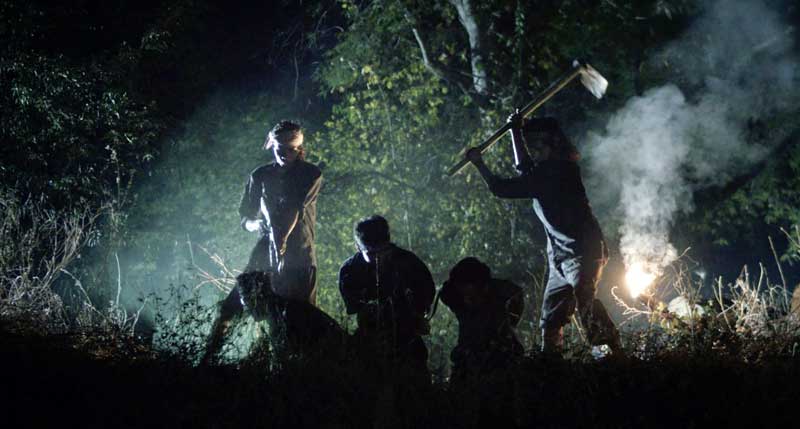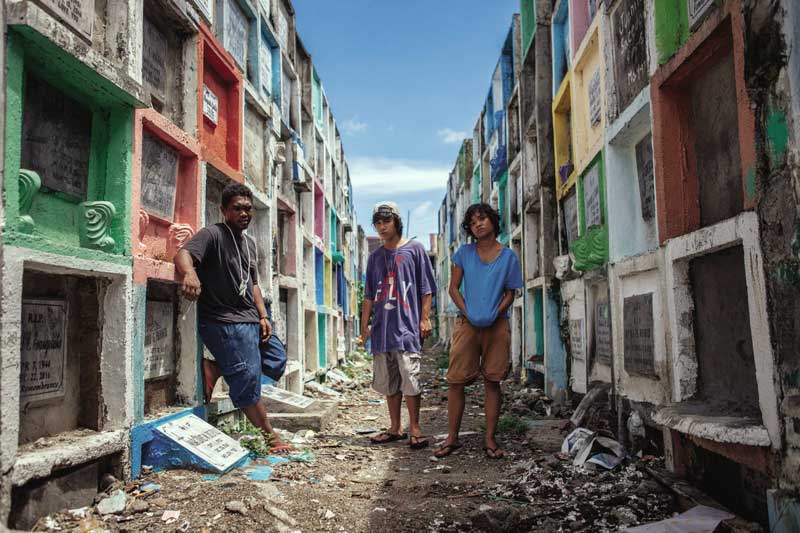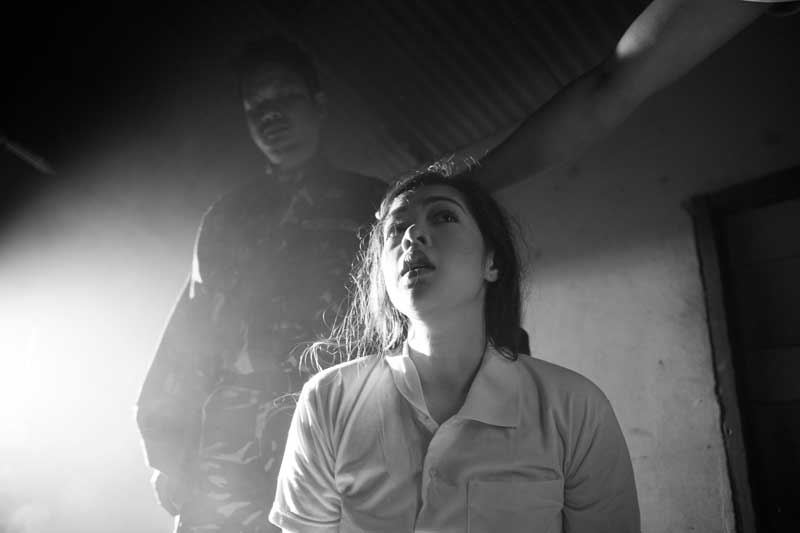‘Crosscut Asia’: Music with a twist of the knife

MANILA, Philippines — It was only towards the middle of a Cambodian film called In the Life of Music that I understood how subtitles could, in a way, be quietly revelatory.
Only after the two leads met in a town gig did the film flash an English translation of the pop song Champa Battambang. Simple and honest, the lyrics offered something all of us knew at one point in our lives: innocent yearning, that strained state of waiting for something to arrive, and the joy when it finally does. Predictably, the leads discovered their attraction in that scene. But barely did we get to enjoy that budding happy feeling when the film flipped the card and bared the reverse. What followed was the Khmer Rouge Regime leading masses of people into forced labor and genocide.

The Cambodian film In the Life of Music portrays the brutality of the Khmer Rouge Regime.
A lot of the films in “Crosscut Asia,” a section rounding up Southeast Asian films in the Tokyo International Film Festival from Oct. 26 to Nov. 3, combined song and history in this way. When they announced that this year’s theme was music, what immediately came to mind was musicals where characters would constantly be breaking into song. I’ve always felt that musicals, even in film, were still like theater, in that they demand from their audience a similar suspension of disbelief. But what “Crosscut Asia” unspooled was something else — it was hard reality which needed songs as records of memory or as means to survive. This year’s lineup included Filipino films such as Treb Monteras’ Respeto and Lav Diaz’s Ang Panahon ng Halimaw.

A scene from Treb Monteras’ Respeto
Watching In the Life of Music had me thinking about language and translation. Directed by Caylee So and Visal Sok, the film is about young lovers undergoing the brutality of the Khmer Rouge Regime. Years after, a young US-bred girl travels back to Cambodia and encounters its aftermath. Barely understanding her parents’ native tongue, she ends the film singing Champa Battambang.
Having been led into so many events and emotions where that song is involved, we wonder if the young singer feels the weight even as she doesn’t understand the words. The only ties she has with Cambodian history is her ancestry — and that alone is pretty abstract. But like in oral tradition, she inherits the song and in this way, she is standing in for the rest of us, inheriting a past we barely understand and the loss of a world that still marks and haunts us. For the audience, the song will always occupy a twilight world between innocent yearning and irretrievable loss.

A scene from In the Life of Music. This year’s “Crosscut Asia” focuses on music, which plays a large role in different Southeast Asian films and in the history of the region.
This theme of words and the inheritance of song is also pronounced in Respeto, a film which debuted in 2017 and has since participated in festivals in Europe and North America. According to its director Treb Monteras, “Respeto talks about the martial law era and the current Philippine war on drugs. I used hip-hop music to weave these parts of the Philippines together… This film is about the unending cycle of violence that has been happening in our country, since the martial law era. History is starting to repeat itself.”
We know this story: the boy-rapper and the old man-poet. Both have lived, or are living, in unforgiving times. The rite of passage comes in a stadium where verse, rhyme and beat are currency. As much as Respeto rails against the current time, I’ve always thought that it also shows how language, like music, shape-shifts over time. It asserts the link between rap and balagtasan. It demonstrates how verse is a vital force in whatever permutation, but still, and ultimately, how futile.

A scene from directors Caylee So and Visal Sok’s In the Life of Music
There’s a cold sense of futility in both of these films: A singer gives his last performance before being shot to death. A boy, capable of powerful rhyme, learns brutality. It gives them music, only to drag them further into a world without one.
And then of course, there is Diaz. Unlike the other two, Ang Panahon ng Halimaw uses song like a distancing device, alongside the monochrome treatment and use of recitative (Diaz calls the film a rock opera). Together, they give the film an atmosphere of unreality, seeming to draw us further away from the world it depicts, only to reel us painfully back in. What I admired about Diaz’s piece isn’t only the message but always the way he crafts it. He crafts a world that is stylistically as stark as the story he tells. Ang Panahon ng Halimaw was vaguely hypnotic. We sat in the cinema for four hours — “which is tolerable for a Lav Diaz film,” fellow director Kidlat Tahimik remarks — uneasy and recoiling not so much because of the scenes but because of their deliberate and painful slowness. With no camera movements, every scene is a theater set we are waiting impatiently to unfold. In his world, characters wait for resolutions, only to achieve more pain in their waiting.

Lav Diaz’s “rock opera” Ang Panahon ng Halimaw.
In bringing these films together, “Crosscut Asia” honors loss that’s universal while its roots and remnants remain specific: labor camps in ‘70s Cambodia, a countryside governed by Marcos cronies, rap battles and limp bodies. And what does music do? If it doesn’t save us, then it survives us. It never negates loss but it passes on a memory, to which every singer testifies.


















